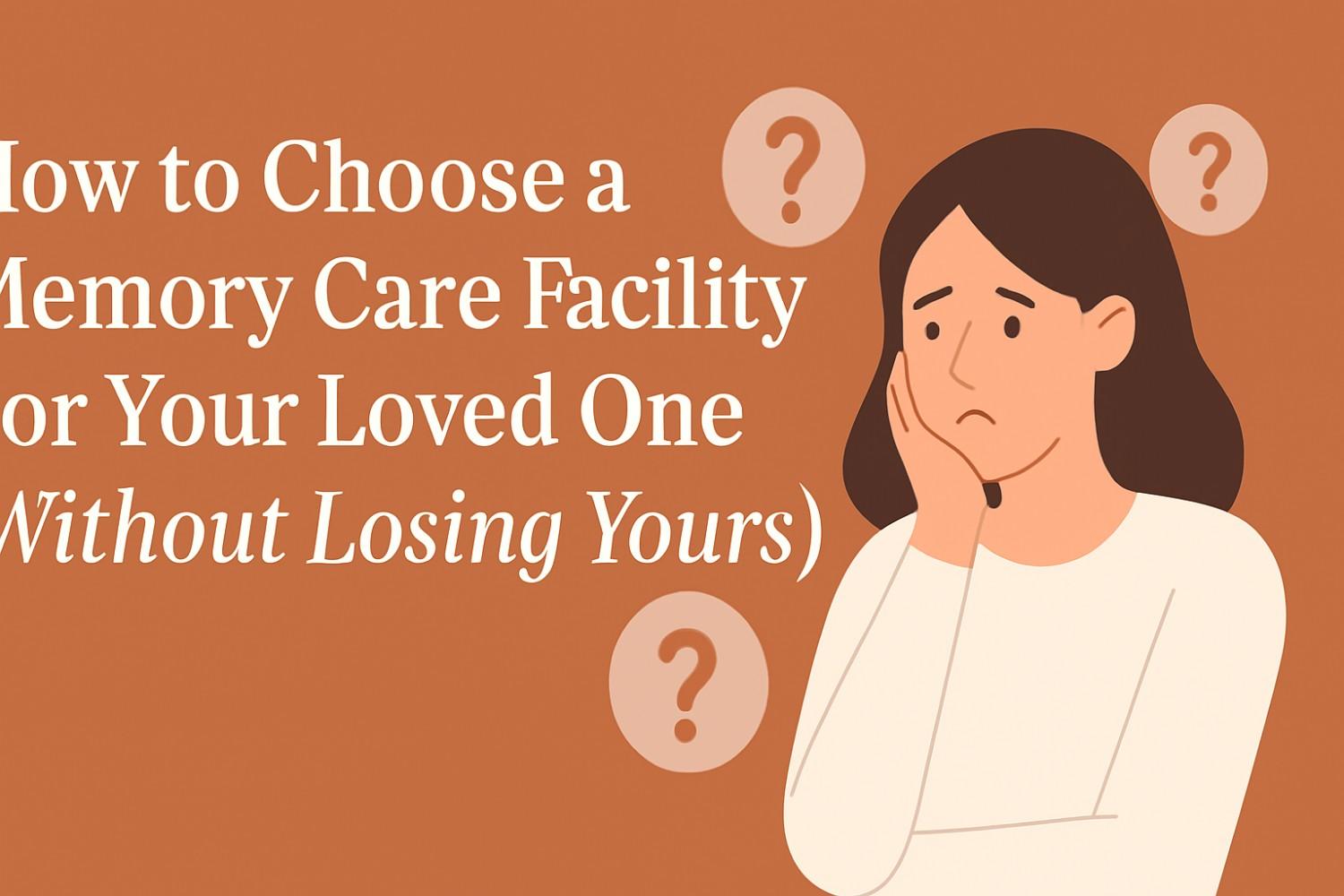How to Choose a Memory Care Facility For Your Loved One

Let’s be honest—nobody puts “shop for memory care” on their bucket list. And yet, here we are. Whether it’s the subtle signs (like Mom misplacing the cat in the freezer) or the big wake-up call (like Dad driving to the bank and ending up in Delaware), we all reach that moment when we know: it’s time to get help.
So, how do we find the right memory care facility for our loved one? More importantly, how do we do it without spiraling into a panic Googling spiral at 2 a.m., sobbing into our leftover meatloaf? (No? Just us?)
We’re here to guide you—sans judgment, sans jargon, and maybe with a few giggles along the way.
Step 1: Understand What Memory Care Actually Is
First, let’s clear something up. Memory care is not just a fancy wing of a nursing home with soft lighting and more puzzles. It’s specialized, secure care tailored for individuals with Alzheimer’s, dementia, or other cognitive issues. The staff are trained to understand the nuances of memory loss—which means they know how to handle the really tough stuff: sundowning, wandering, and the 17th retelling of that fishing story from 1962.
(Yes, we’ve heard it. Yes, it’s always a trout.)
Step 2: Location, Location—and Maryland
When it comes to choosing a facility, the location isn’t just about proximity to your house (though a short drive does wonders for your sanity). It’s also about the state-specific regulations and community feel. We’ve toured several memory care facilities in Maryland, and let’s just say—it matters.
Maryland has some of the best options in the country: from cozy, cottage-style campuses to sprawling, spa-like resorts (one had a koi pond, folks—a koi pond). More importantly, the state holds facilities to high licensing standards—so if you’re searching within Maryland, you’re already off to a good start.
Step 3: Ask These (Surprisingly Revealing) Questions
We like to think of this as speed dating—if your date were going to be responsible for bathing Grandma. Here’s what you need to ask:
-
What’s the staff-to-resident ratio?
Spoiler: 1:12 is not ideal. We want human connection, not a group shuffleboard tournament managed by one frazzled CNA. -
What’s their approach to challenging behaviors?
If they mention “redirection,” “person-centered care,” and “non-pharmaceutical interventions,” you’re golden. If they sigh heavily and mention “containment”… maybe not. -
How do they handle meals?
This isn’t just about chicken or fish. Are the meals nutritionally balanced? Are staff trained to assist with feeding when needed? And—this is big—is dessert still a thing? (It should always be a thing.)
Step 4: Tour the Facility Like a Pro (Bring the Nose)
We once toured a memory care facility that smelled like lemons and hope. Another one? More like industrial cleaner and repressed regret. Smell matters.
So do sights and sounds. Is the space clean and cheerful or does it look like the set of a 1980s hospital drama? Are residents engaged in activities or sitting silently in a hallway staring at a vending machine from 1994?
One of our favorite tours involved a resident named Alice who insisted we sit down for bingo—and then proceeded to beat us handily. We loved it. That’s the kind of environment we want: dignity, joy, and just enough sass to keep things interesting.
Step 5: Money, Insurance, and Other Nightmares
We wish we could say memory care was affordable. We also wish dark chocolate cured dementia.
But here we are. In Maryland, memory care typically ranges from $4,000 to $8,000 per month depending on services. Make sure to ask:
-
What’s included in the base rate?
-
What services cost extra (like medication management or toileting assistance)?
-
Do they accept Medicaid or long-term care insurance?
And for the love of spreadsheets, get it in writing.
Step 6: Watch for These Red Flags
A few years back, a friend of ours toured a facility where the activities director was also the receptionist and the cook. That’s not multitasking—it’s a cry for help.
Other red flags include:
-
High staff turnover (no one should be new every week)
-
Lack of personalized care plans (if they say “we treat everyone the same,” run)
-
Disengaged residents (think more “active grandparent” and less “abandoned shopping mall”)
Step 7: Involve Your Loved One
Now, we know this isn’t always possible. But if they’re able, include them in the process. Show photos. Take them on a tour. Let them pick their favorite room (even if it’s because the carpet is “less judgmental”).
Involving them can reduce fear and boost cooperation—plus, it gives them a sense of control during a time when most things feel like they’re slipping away.
Final Thought (and a Little Hope)
Look, we get it. Choosing a memory care facility is like dating, except with higher stakes and fewer margaritas. But it’s also an act of deep love—choosing safety, dignity, and care when your loved one can’t choose it for themselves.
We’ve been there. We’ve cried in the parking lot. And we’ve also laughed when Dad told the caregiver she reminded him of a young Elvis.
You’ll get through this. And so will they.
As we like to say around here: Senior care isn’t perfect—but love always is.
FAQs
Q: What’s the difference between memory care and assisted living?
A: Memory care is specialized for individuals with Alzheimer’s or other forms of dementia, offering a higher level of supervision, secure environments, and cognitive-focused care. Assisted living is generally for seniors who need help with daily tasks but don’t have significant memory issues.
Q: Are memory care facilities in Maryland licensed or regulated?
A: Yes. Maryland has specific licensing and oversight for memory care communities under the Maryland Department of Health. It’s always smart to check a facility’s inspection reports.
Q: Can I visit my loved one regularly in memory care?
A: Absolutely! In fact, regular visits can ease the transition and help your loved one feel connected. Many memory care facilities in Maryland encourage family engagement and host events for loved ones.
Q: How do I know if it’s time for memory care?
A: If safety is at risk—wandering, medication mismanagement, aggression—or if caregiving is affecting your own health, it might be time. You’re not giving up—you’re getting help.
Q: What activities do memory care residents do all day?
A: Great ones offer music therapy, memory games, exercise, arts and crafts, and sensory stimulation. (And yes, sometimes bingo—Alice is still undefeated.)




